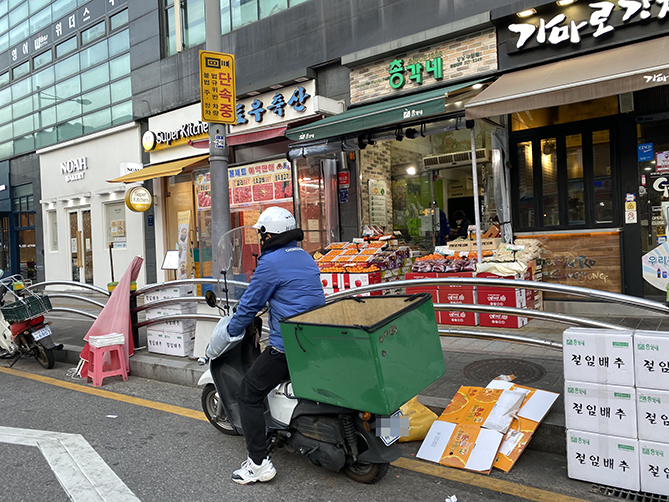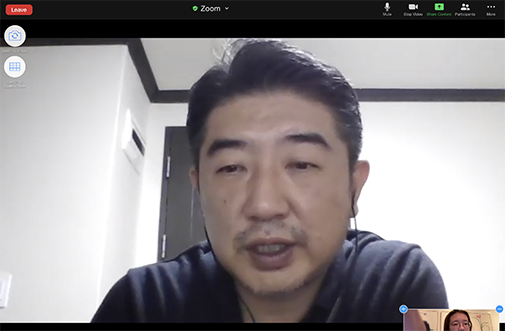Months after the start of the COVID-19 pandemic, people have been coping with a new reality of eating food. Now, you can no longer sit at restaurant and only eat with delivered food. South Korea boasts an array of food delivery apps which provide a many consumers speedy access to various kinds of food. According to a 2018 report by TrendMonitor, which is operated by the Korean market research firm MacromillEmbrain, 73.4 percent of the 1,000 Koreans(from ages 15 to 59)said that they haveexperincedfood delivery apps.

What has happened since thestart of the pandemic, however, begs the question: have food delivery services seen as much growth as in the past? Unlike their more traditional competitors, such as sit-in restaurants, food delivery apps in Korea have constantly grown in the midst of COVID-19. Compared to the week before the pandemic(in Korea, Jan. 27 through Feb. 2), the number of delivery app users in Korea increased by 17.1 percent according to UBS Korea. Other food chains, like burger chainLotteria, expect delivery orders to increase by 35 percent compared to revenue by the end of the year. A recent ad-tech company IGAWorksshow that Coupang Eats, a food delivery app launched by leading e-retailer Coupang Inc., reached 748,000 users in 2020; four times the amount the number of users the app had in 2019. In short, COVID-19 has opened up opportunities for innovation (and vast economic gain) for food delivery companies.
Kiwan Ihn, who is the head of the global business division of Woowa Brothers Group and the CEO of Woowa Brothers Vietnam, agrees that food delivery apps havesignficantly grown in 2020. Woowa Brothers is a Korean company that runs Baemin (BaedalMinjok), a prominent delivery app in Korea. “After the start of COVID-19, the surge in food delivery orders was phenomenal not only in South Korea but also in other countries that Baemin operates in (like Vietnam),” Ihn said. “For example, in Japan, when lockdown started, food delivery searches doubled or even tripled. In Asia, the overall number of food delivery orders has tripled or quadrupled compared to last year.”

However, being a food delivery app does not come without challenges. The service still requires some level of contact, something that many Koreans expressed concern about given the pandemic. When asked if food delivery apps, particularly Baemin, underwent any significant changes to its delivery system to adjust to COVID-19, Ihn replied that “there weren’t many revolutionary changes to the fundamental system, as the company still want to maintain the significant convenience it brings to its customers.” He did add, however, that “[there were] still some notable changes made to the way food deliveries were carried out in a way that would be safer and more hygienic to both the delivery worker and the customer. We call it ‘contactless delivery’: customers would ask delivery workers to just drop the food off in front of their door to avoid the potential transmission of germs through in-person payments.”
Another form of contactless delivery, which Ihn introduces as an effective new method amidst the coronavirus, could soon expand to a mode of food delivery that explores the boundaries of current technologies. Baemin also recently launched a line of food delivery robots in South Korea early this fall: the outdoor-oriented robot that brings prepared meals from apartment to apartment has features that include running for over eight hours per day, carrying multiple food packages at once, and headlights that turn on for night deliveries. Although this outdoor delivery robot is still in the trial stage, it could become a useful addition to companies like Baemin and further advance the method of contactless delivery in a way that is conducive to all stakeholders: management, delivery workers, and customers.
Ihn and other proponents of the food delivery market are hopeful for the future of food delivery apps. The unprecedented nature of the COVID-19 pandemic serves as a good reminder for businesses in Korea: with every adversity comes potential opportunities, and for those who rise to the challenge, like companies in the food delivery service industry, creativity and innovation can lead to success in tough times like these.

Katherine Lee
Grade 11
Seoul International School

